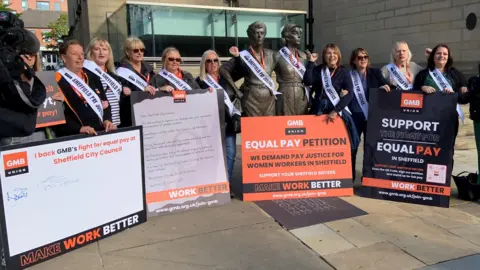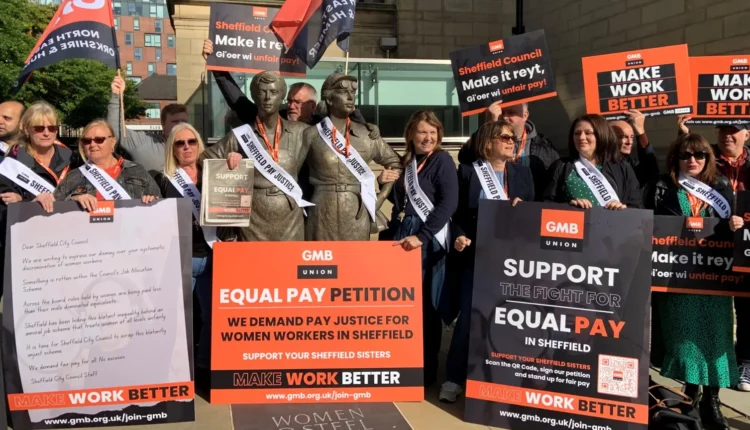Council to spend £51m on equal pay settlements.
Sheffield Council has agreed to pay £51 million to staff as part of a landmark equal pay settlement, but has stated that the amount would not bankrupt the authority.
A compensation for 3,600 employees in 260 various roles will cost the authority £36 million, which will come from the council’s reserves. Another £15 million will be shared by approximately 1,600 non-teaching school workers.
The council stated that it was in discussions with the central government concerning funding assistance, but that individual school budgets would be unaffected.
Women account for 75% of the affected municipal employees and 90% of non-teaching workers.
Council Leader Tom Hunt stated that the council was “in a stable financial position, and this would have no impact on council tax or services.” The equal pay issue was one of the main reasons Birmingham City Council declared effective bankruptcy, stating that it would face a £760 million liability to settle 6,000 claims.
Glasgow City Council has agreed to pay £770 million to 19,000 applicants. According to the GMB, hundreds of Bradford Council workers have filed equal pay claims. Sheffield Council examined 2,000 distinct work roles.
Hunt stated that the council introduced a job evaluation mechanism in 2010, and the GMB trade union had concerns about equal pay inequalities in 2023. “As soon as we became aware, we acted and collaborated with unions to conduct a review of all responsibilities in the council.
“Council reserves are available for use in instances like this. We are in discussions with central government on redress payments for workers who work in maintained schools, but these payments will not come from school budgets.”



Comments are closed, but trackbacks and pingbacks are open.